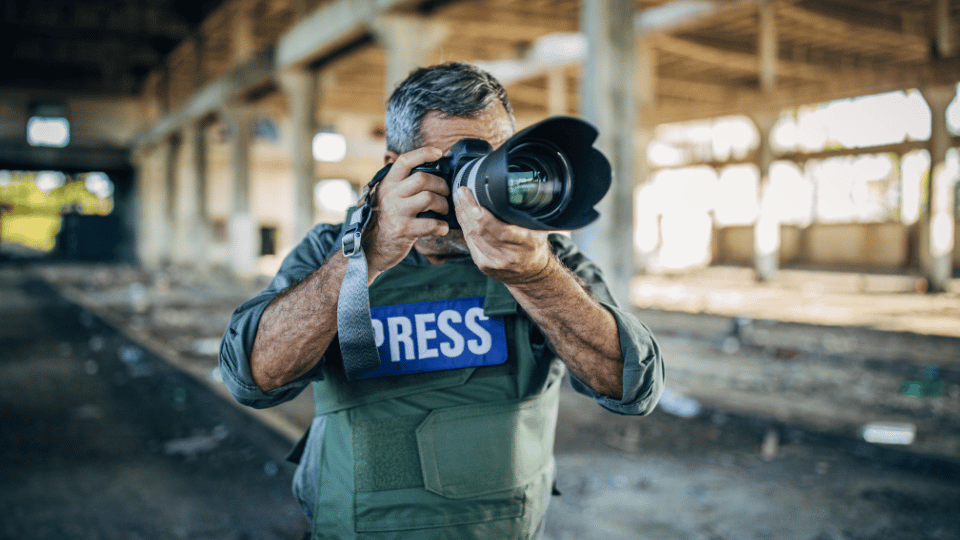In today’s interconnected world, the role of journalism in reporting on humanitarian crises has become increasingly crucial. Journalists play a vital role in shedding light on the issues faced by communities affected by natural disasters, conflicts, and other emergency situations. Through their reporting, they not only raise awareness but also influence public opinion, mobilize resources, and hold governments and organizations accountable. If you are passionate about making a difference and want to pursue a career in reporting on humanitarian crises, this article will provide you with valuable insights into the field and the top 10 jobs available.
1. Humanitarian Journalist
As a humanitarian journalist, your primary responsibility is to report on the ground during crises. You will be tasked with gathering information, conducting interviews, and documenting the impact of disasters and conflicts on affected communities. Your reports will aim to inform the public, policymakers, and humanitarian organizations about the situation, with the ultimate goal of bringing about positive change.
2. Crisis Communication Specialist
In times of humanitarian crises, effective communication is crucial. Crisis communication specialists work closely with humanitarian organizations, government agencies, and media outlets to ensure accurate and timely information dissemination. They develop communication strategies, manage media relations, and coordinate public awareness campaigns to convey critical messages to the affected population and the wider public.
3. Photojournalist
A picture can speak a thousand words, and in the context of humanitarian crises, powerful images can evoke strong emotions and drive action. Photojournalists capture compelling visuals that document the realities faced by affected communities. Their photographs are often featured in newspapers, magazines, and online platforms, bringing the crisis to a wider audience and inspiring empathy and support.
4. Investigative Journalist
Investigative journalists play a crucial role in uncovering the truth behind humanitarian crises. They dig deep into the causes and consequences of disasters and conflicts, exposing corruption, negligence, or human rights violations. Through their in-depth reporting, they hold those responsible accountable and advocate for justice and change.
5. Broadcast Journalist
Broadcast journalists report on humanitarian crises through television or radio broadcasts. They bring the stories of affected communities into people’s homes, providing real-time updates, interviews, and analysis. Their work reaches a wide audience, making them influential in shaping public opinion and driving action.
6. Data Journalist
In the age of big data, data journalists analyze and interpret complex information to reveal the underlying trends and patterns in humanitarian crises. They use data visualization techniques to present their findings in a compelling and accessible manner, helping policymakers and the public understand the scale and impact of the crisis.
7. Social Media Journalist
Social media has revolutionized the way news is consumed and shared. Social media journalists leverage platforms like Twitter, Facebook, and Instagram to report on humanitarian crises in real-time. They provide live updates, share eyewitness accounts, and engage with the audience, amplifying the voices of affected communities and mobilizing support.
8. Documentary Filmmaker
Documentary filmmakers create powerful visual narratives that go beyond the headlines, offering a deeper understanding of humanitarian crises. Through their films, they explore the root causes, human stories, and long-term consequences of disasters and conflicts. Documentaries have the potential to reach a global audience and provoke meaningful conversations and actions.
9. Human Rights Journalist
Human rights journalists focus on reporting the violation of human rights during humanitarian crises. They investigate and document cases of abuse, discrimination, and injustice, shedding light on the often overlooked human rights issues that arise during emergencies. Their work is crucial in holding perpetrators accountable and advocating for the protection of vulnerable populations.
10. Freelance Journalist
Freelance journalists have the flexibility to work independently and cover a wide range of topics related to humanitarian crises. They pitch their stories to various media outlets, allowing them to have a diverse portfolio and reach different audiences. Freelancing offers the opportunity to work on multiple projects simultaneously and have a significant impact through their reporting.
Conclusion
Remember, reporting on humanitarian crises is not only a noble pursuit but also a powerful way to make a positive impact on the world. Whether you choose to be on the ground as a humanitarian journalist, behind the camera as a documentary filmmaker, or behind the scenes as a crisis communication specialist, your work can bring attention to critical issues, drive change, and ultimately contribute to a better future for affected communities.
Key Takeaways:
- Reporting on humanitarian crises is crucial in raising awareness, influencing public opinion, and holding governments and organizations accountable.
- The top 10 jobs in reporting on humanitarian crises include humanitarian journalist, crisis communication specialist, photojournalist, investigative journalist, broadcast journalist, data journalist, social media journalist, documentary filmmaker, human rights journalist, and freelance journalist.
- Each role plays a unique part in documenting and sharing the realities of crises, advocating for change, and protecting vulnerable populations.
- Pursuing a career in reporting on humanitarian crises requires a passion for storytelling and a drive to make a positive impact.
Consider furthering your knowledge and skills by taking the NYU | Modern Journalism online course and certificate program, offered by Yellowbrick, to gain a comprehensive understanding of modern journalism practices and enhance your career prospects in this field. Whether you aspire to be on the front lines as a humanitarian journalist or behind the scenes as a crisis communication specialist, your work has the potential to bring about positive change and contribute to a better future for those affected by humanitarian crises. Embrace the power of journalism and make a difference in the world.








